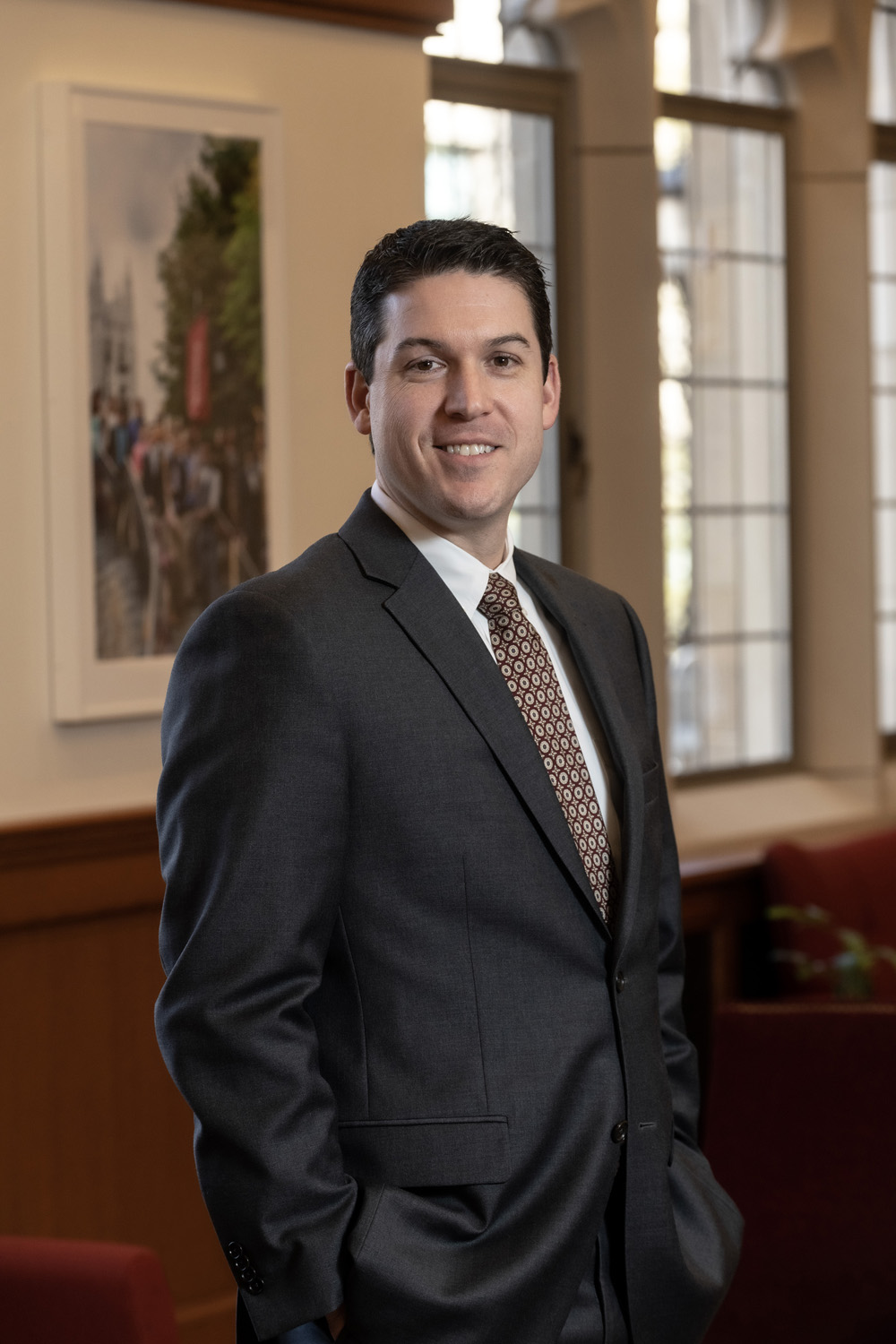BC admits Class of 2028
With practically each new first-year class, Boston College has continued to reach ever higher levels of academic excellence—and the newly admitted Class of 2028 is no exception.
As of March 21, the date when the Office of Undergraduate Admission posted its Regular Decision results, a little more than 5,200 offers of admission had been extended for this fall’s first-year class, out of a total pool of 35,475 applications.
The admit rate for the Class of 2028 is 14.7 percent, similar to last year, despite the University’s aim to enroll a slightly larger class of 2,350. Just seven years ago, the admit rate for the Class of 2021 was 32 percent.
Ninety-five percent among the admitted students—who have until May 1 to secure their place in the Class of 2028—rank in the top 10 percent of their high school class; their average scores on the SAT and ACT, respectively, are 1511 and 34.

Dean of Undergraduate Admission and Financial Aid Grant Gosselin (Lee Pellegrini)
“Boston College’s upward trajectory continues with this most recent class, as evidenced by their academic prowess in the classroom and their vast talents in the community,” said Dean of Undergraduate Admission and Financial Aid Grant Gosselin. “As the level of selectivity in the pool increases, so does the academic excellence of each incoming class.”
More than 14 percent of admitted students will be the first in their families to attend college, up from 12 percent last year, noted Gosselin. “Boston College has long viewed higher education as a vehicle for social mobility. The members of the Admission staff have worked hard to identify students who will both contribute to and benefit from this incredible community. Our classrooms, residence halls, athletic teams, and student organizations are at their best when they include students from a wide range of backgrounds.”
In addition to all 50 of the United States, three U.S. territories, and Washington, DC, this cohort of admitted students are citizens or residents of 91 countries.
Undergraduate Admission is gearing up for two Admitted Eagle Days, to be held this Sunday and the one following, during which admitted students and their families are invited to visit BC for campus tours—including a look inside a residence hall—as well as opportunities to meet members of the University community, and other events and activities.
Throughout this month, noted Gosselin, Admission staff will partner with alumni to host 24 yield receptions in 14 states, Puerto Rico, Hong Kong, and Beijing.
The 2023-2024 admission cycle has included countless challenges, not least of which has been the rollout of the new FAFSA financial aid form. The FAFSA, used by colleges and universities to determine federal financial aid eligibility, underwent its largest overhaul in 50 years, Gosselin explained. FAFSA data is currently unavailable to colleges, thereby threatening financial aid funding to millions of students throughout the country.
“However,” he noted, “because Boston College uses the CSS Profile form in addition to the FAFSA to award financial aid packages, we’ve been able to notify admitted students of their aid eligibility throughout this year’s undergraduate admission cycle. While funding sources cannot be determined until the FAFSA data has been received, our admitted students have firm financial aid information to use in making their decision to accept our offers of admission.
“Our colleagues in Financial Aid are to be commended for their exceptional work under these most challenging circumstances. I am grateful for their dedication to our students.”
